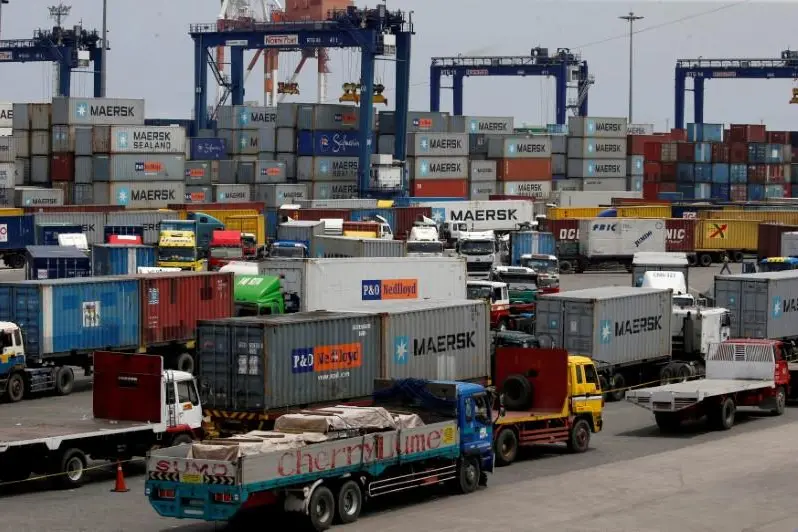PHOTO
MANILA - The Philippines posted a narrower trade deficit in November as imports rose at their slowest pace in eight months led by consumer goods, while exports contracted albeit marginally, the statistics agency said on Thursday.
Imports in November climbed 6.8 percent from a year earlier to $9.47 billion, the first single-digit rise after seven consecutive double-digit monthly increases, the Philippine Statistics Authority said.
Exports contracted 0.3 percent from a year earlier to $5.57 billion, the first decline in six months.
The trade gap was narrower in November at $3.9 billion, compared with the revised record-high $4.08 billion in October.
The Southeast Asian country's trade deficit in January-November widened to $37.7 billion, compared with a $23.4 billion gap in the same period in 2017, government data showed.
Nicholas Mapa, senior economist at ING Bank in Manila, said the November imports data reflected the "base effects" following a 20 percent gain in imports in November 2017.
In particular, he said the contraction in consumer goods imports was mainly because of the 28.1 percent drop in cars and motorcycles, following a "buying spree" in the last quarter of 2017.
"This is one other reason why 4Q GDP will likely take a hit," Mapa said.
The country has been posting large trade deficits since 2017, a trend that is likely to continue due to increased imports of infrastructure-related goods for its massive "Build, Build, Build" programme, and has kept the peso under pressure.
The Philippine peso PHP= opened at 52.20 per U.S. dollar after the release of trade data, compared with its 52.345 close on Wednesday. It hit 13-year lows last year and is up 0.6 percent this year so far.
"The PHP has been enjoying the EM rally in the first few weeks of the year with the Fed seen to be more dovish than last year," Mapa said.
"But with the country expected to post current account deficits for the foreseeable future, we expect further pressure on the PHP to return in the coming months," he said.
(Reporting by Karen Lema and Enrico dela Cruz; Editing by Sunil Nair) ((enrico.delacruz@tr.com; +632 841-8934; Reuters Messaging: enrico.delacruz.thomsonreuters.com@reuters.net))





















